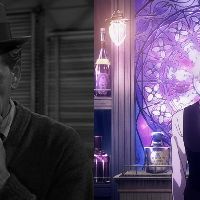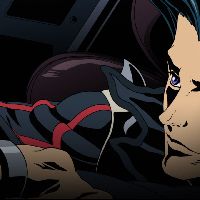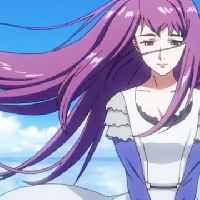Background
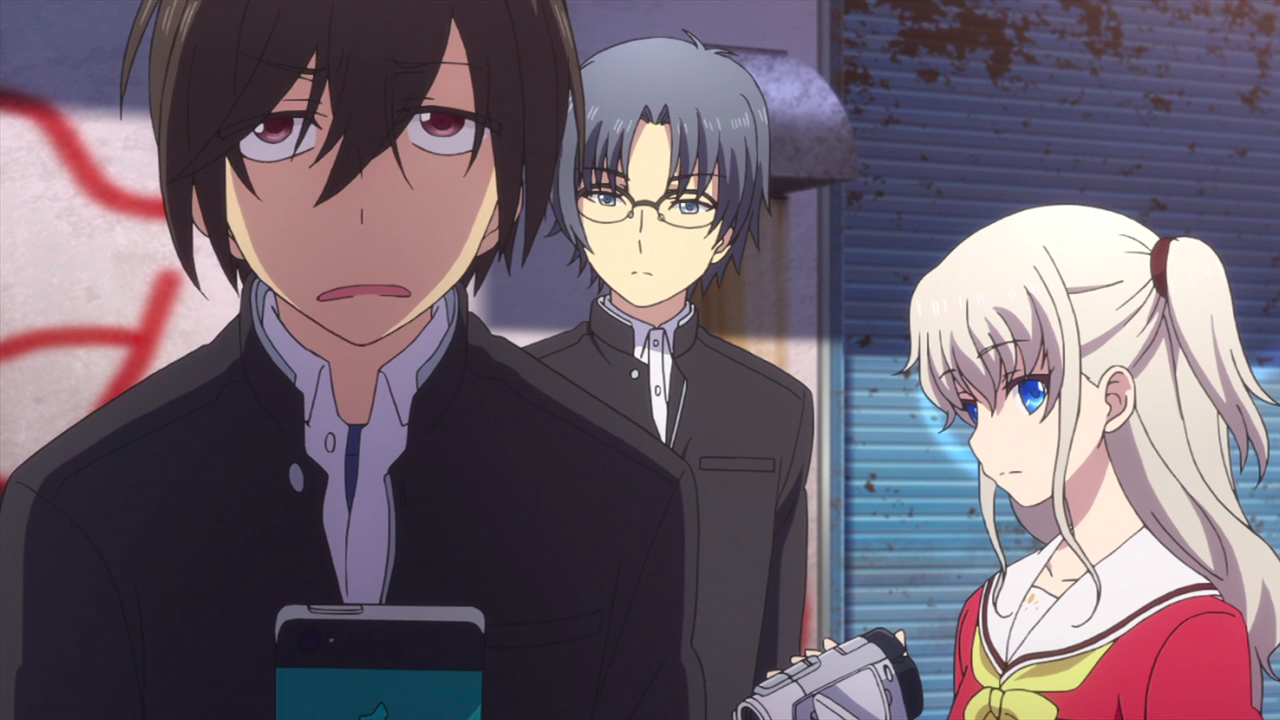
Charlotte was a thirteen episode anime that wrapped up at the end of the summer season. The series was written by Jun Maeda, the famous writer of Angel Beats! and the Clannad, Air, and Little Busters! visual novels. Maeda also contributed some music to the series, as he tends to do with all his works. The series marked a drastic change in style for Maeda, having a faster pace and focusing more on plot and action than his other works.
The story centers Yuu Otosaka, a first year student at Hinomori High School. Otosaka was born with the superhuman ability to possess other people for five seconds at a time. He uses this power for his own personal gain by possessing the smartest students in his class so he can copy their answers and cheat his way to the top of his school. He also possesses a truck driver to put the girl he likes in a life or death situation that only he can save her from, which puts him on her good side. Otosaka's antics become noticed by Nao Tomori and Jojiro Takajo, members of the student council at Hoshinoumi Academy. The two confront Otosaka about his misuse of his powers and tell him that Hoshinoumi Academy is a school specifically designed for people who have superhuman powers (similar to Charles Xavier's School for Gifted Youngsters). They force Otosaka to become a member of the student council and the three recruit new students for the school and stop others who are using their powers unjustly. Charlotte has one of the most unpredictable and crazy plots in recent memory and the story goes to some pretty wild places later on.
Who is Zhiend?
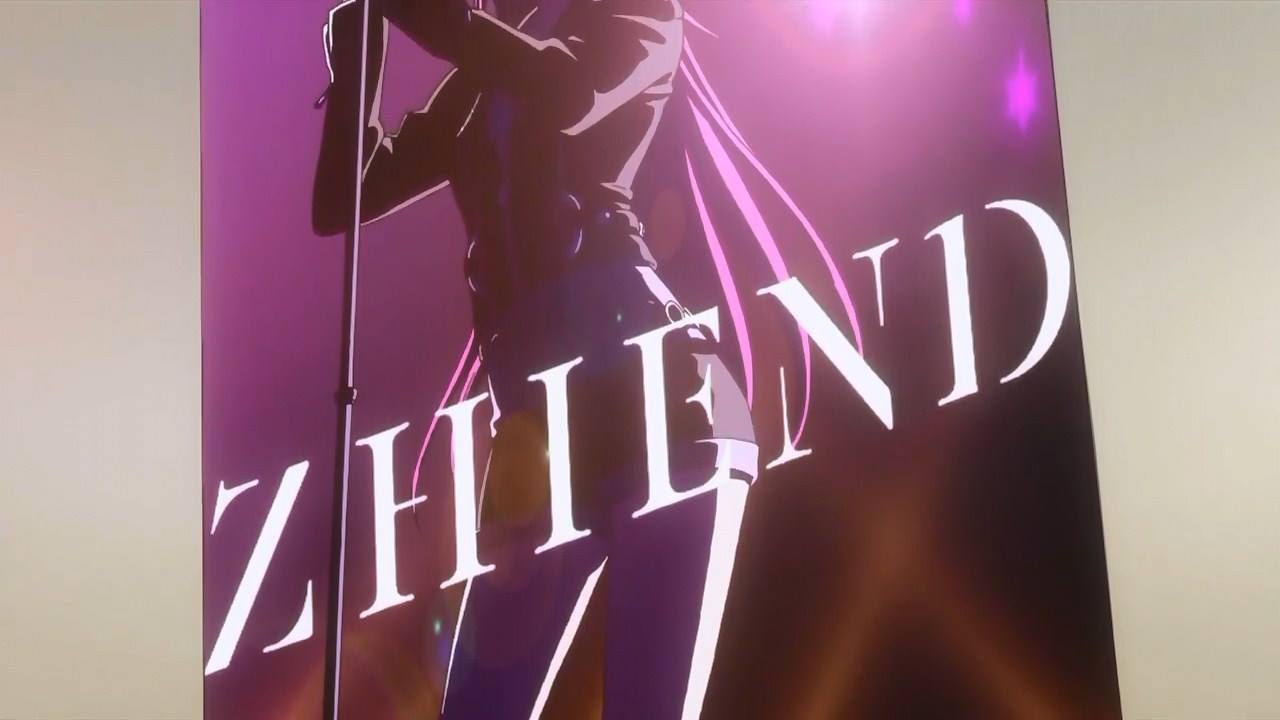
Tomori's brother, Kazuki, is a guitar player who is about to sign a major label contract with his band. He is a huge fan of the band Zhiend and burns a CD of them for Tomori. Kazuki has the power to manipulate sound waves at will. He does this to create unique sounds out of his guitar, which is the reason for his success. However, their mother gets into a financial crisis and needs money. She gets an offer to send her kids to "boarding school" for a large amount of money, which she accepts. However, the "boarding school" is actually a place where scientists experiment on kids who have supernatural powers. They experiment on Kazuki every day after his classes, which causes him permanent mental damage. Scientists are interested in studying his power because they believe they can discover a way to take control of communication broadcasts and airwaves by doing so. He loses the ability to speak and think properly. After the experiments, he becomes dependent on his prescribed painkiller medication. When the pills wear off, he rips apart his bedding and yells, thinking he is playing guitar.
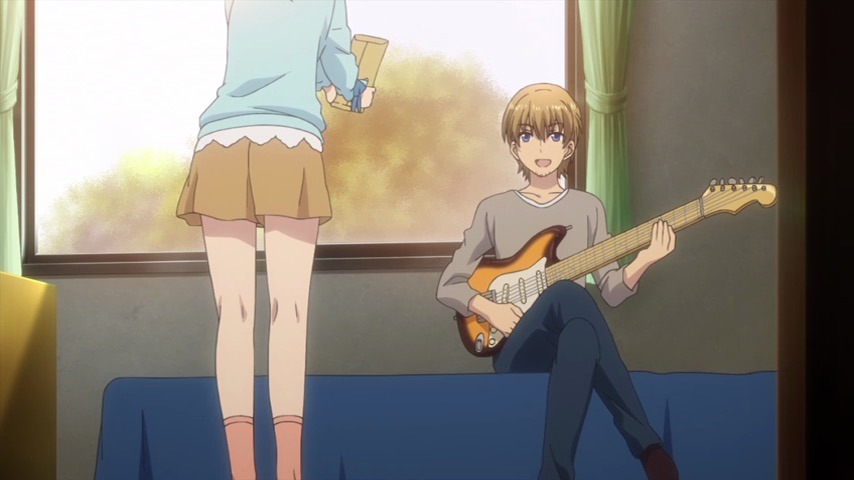
This experience caused Tomori to start obsessively listening Zhiend. She listens to them because they remind her of her brother. At several points throughout the show we see her listening to her mp3 player in isolation. She does this during lunch breaks at school and when the student council take a camping trip. Whenever she is listening to music, it is always Zhiend. While camping, Tomori puts her headphones in Otosaka's ears to show him her favorite band. The music immediately conjures up images of wide open fields and other natural landscapes. Yuu says that their music is "vast and downright lonely." Tomori gets excited because she feels he truly understands Zhiend's music. She then tells him that her biggest dream is to film a music video or documentary for Zhiend because their music evokes "imagery extending as far as you can go." She lets him keep the player and Otosaka becomes hooked on Zhiend as well.
Later in the series, Tomori and Otosaka get tickets to see Zhiend live in concert. Before the show, Otosaka meets their singer, Sala Shane, not realizing it is her. They go out for noodles and Sala reveals who she is. Otosaka then tells her about Kazuki's condition. Sala is sympathetic and the two go to the hospital where he is being kept. Sala begins to sing one of Zhiend's songs in front of Kazuki, which causes him to regain some of his mental stability. He is a long way from being permanently cured, but Sala's voice leads him out of stagnation and on the path to recovery.
Post-Rock
Zhiend is a post-rock band. Post-rock is a genre that is characterized by slow tempos, expansive sounds, and evoking a sense of atmosphere through the music. Post-rock stems from shoegaze bands, who were the first to make slow moody songs in the context of rock music. The shoegaze style was pioneered by bands like My Bloody Valentine and Slowdive in the late eighties and early nineties. These bands were considered revolutionary for making new guitar sounds no one had heard before and bringing a depressing atmosphere to rock music. The music of these bands influenced many major rock acts of the 1990's. In particular, The Smashing Pumpkins incorporated a heavy influence of shoegaze on their landmark album Siamese Dream.

The aesthetic of shoegaze then developed into post-rock over the course of a few years. Bands like Godspeed You! Black Emperor and Sigur Rós took the depressive atmosphere of shoegaze and created something different out of it. These bands incorporated varying instrumentation that was unconventional for a rock band like pianos, violins, horns, and e-bows. They also implemented tremolo guitar picking,which means they alternate pick sixteenth notes at high speeds. Post-rock songs are usually long and feature many swelling dynamic shifts. Through use of these musical elements, post-rock creates a sense of isolation, sadness, and expansiveness in the listener. Post-rock is considered to be one of the most pivotal and important musical movements to occur in the past few decades. Its influence has sprawled all over our current musical landscape, even to genres like heavy metal, where bands like Agalloch, Sólstafir, and Alcest incorporate an influence from the genre.
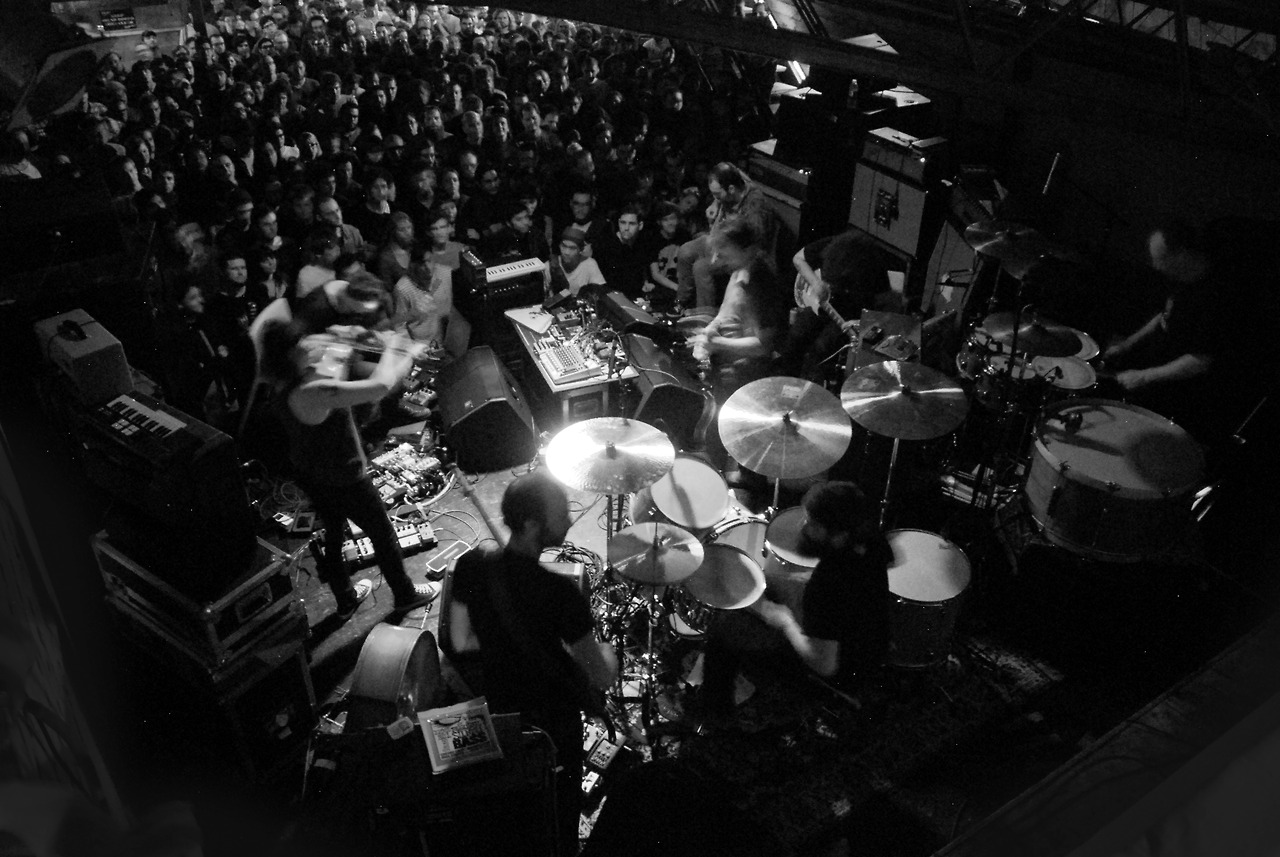
The music we hear Zhiend play is a form of post-rock with heavy pop elements. They have a few catchy and upbeat songs, which a band like Godspeed would never do, yet still retain the atmosphere and mood of post-rock music. Also, Sala Shane's vocals are at the forefront of Zhiend's music. This is also not common in traditional post-rock where the music in mostly instrumental.
Why Zhiend?
Now, why is all of this important? Because Jun Maeda chose to make Zhiend a post-rock band for a specific reason. He could have made them a punk rock band, a jazz band, or a pop band. However, he chose post-rock and there must be a meaning behind this. As Maeda is a musician himself, it is unlikely that he would make such a decision lightly.
The first reason Maeda chose to make Zhiend a post-rock band is because it makes sense within the plot. This is the most banal reason, but it's still evident. Post-rock bands are known for creating new guitar sounds through various effects pedals and other musical accessories. This makes it the perfect fit for Kazuki's power of manipulating sound waves. Kazuki says that Zhiend is his biggest influence and he wants to create different guitar sounds like they do. Therefore, Kazuki would be right at home in a post-rock band. He is certainly not going to have room to use his power in a three chord punk rock band.
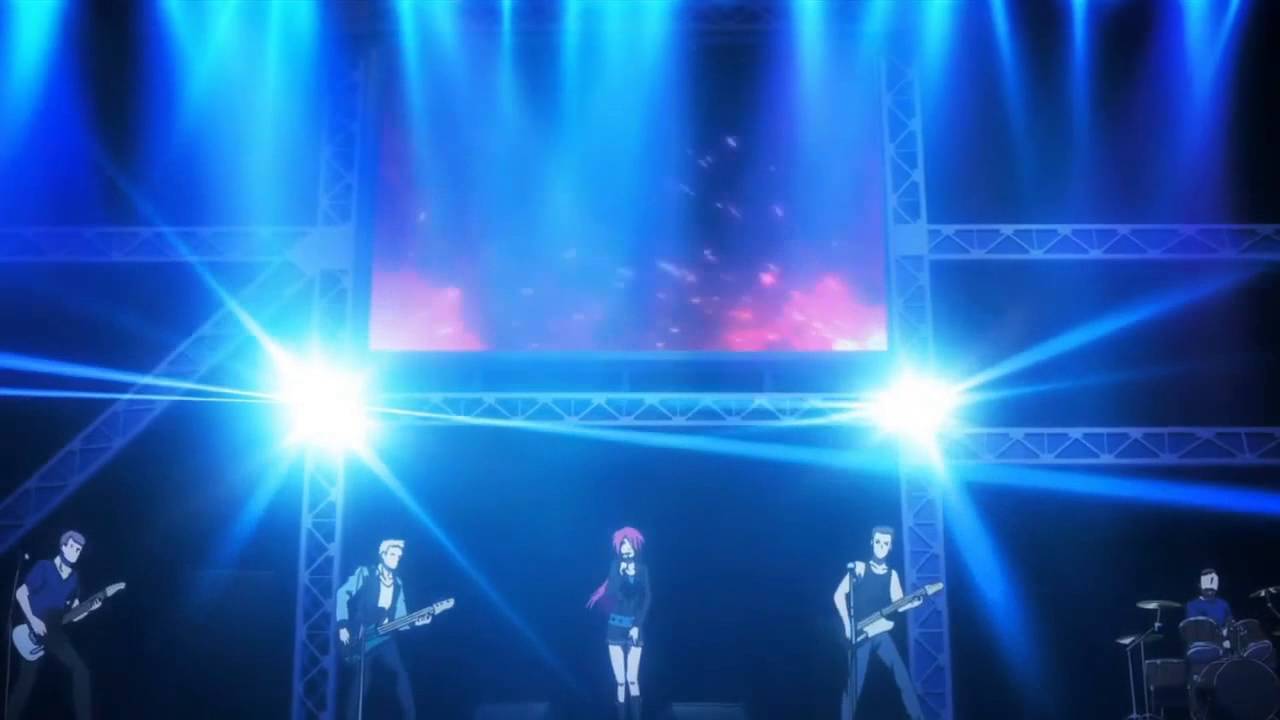
The second reason it's appropriate for Zhiend to be a post-rock band within the show's context is because the music reflects the characters. The depressing emotions that post-rock elicits line up with how the characters in the show feel. Tomori faces a serious emotional pain because of her brother's condition. Kazuki is unable to even recognize his sister when she comes to visit him. Also, the fact that her mother betrayed both of her children to be in a better position financially was an extremely damaging experience for Tomori, as it would be for anyone. It caused her to never be able to trust other people again. On top of all this, Tomori is picked on and beaten up by the other girls at school.
Before the experimentation, Kazuki felt the pain of a struggling musician. Trying to become a professional musician is an emotionally draining experience. Kazuki managed to get to the brink of success, but had to go through a lot of pain to get there.
Otosaka feels pain because transferring to Hoshinoumi Academy made it impossible for him to see the girl he was obsessing over. Realizing this, she rejected him at a pancake house and it upset Otosaka's emotional state permanently. Otosaka's parents also abandoned him and his sister, Ayumi, at a young age. Although they receive some help from their distant uncle, Yuu essentially has to raise Ayumi by himself. Taking on the role of a father figure while still going through adolescence is something that causes him a great deal of confusion and emotional distress. Not to mention, all the characters in the show who have powers feel alienated from "normal" people.
Musical Contrast
Zhiend is a direct contrast and foil to the other major musical act in the show, How-Low Hello. How-Low Hello is a pop group fronted by one of the main characters and another member of Hoshinoumi's student council, Yusa Nishimori. Yusarin, as she is referred to, is a J-pop idol. Most of her fellow students worship her and are fans of her music. This includes Jojiro, who knows the most trivial details about Yusarin's career and life. As can be expected from a J-pop group, How-Low Hello's music is happy, cheerful, and upbeat. Compared to Zhiend, this is almost that exact opposite mood that the music evokes in the listener.
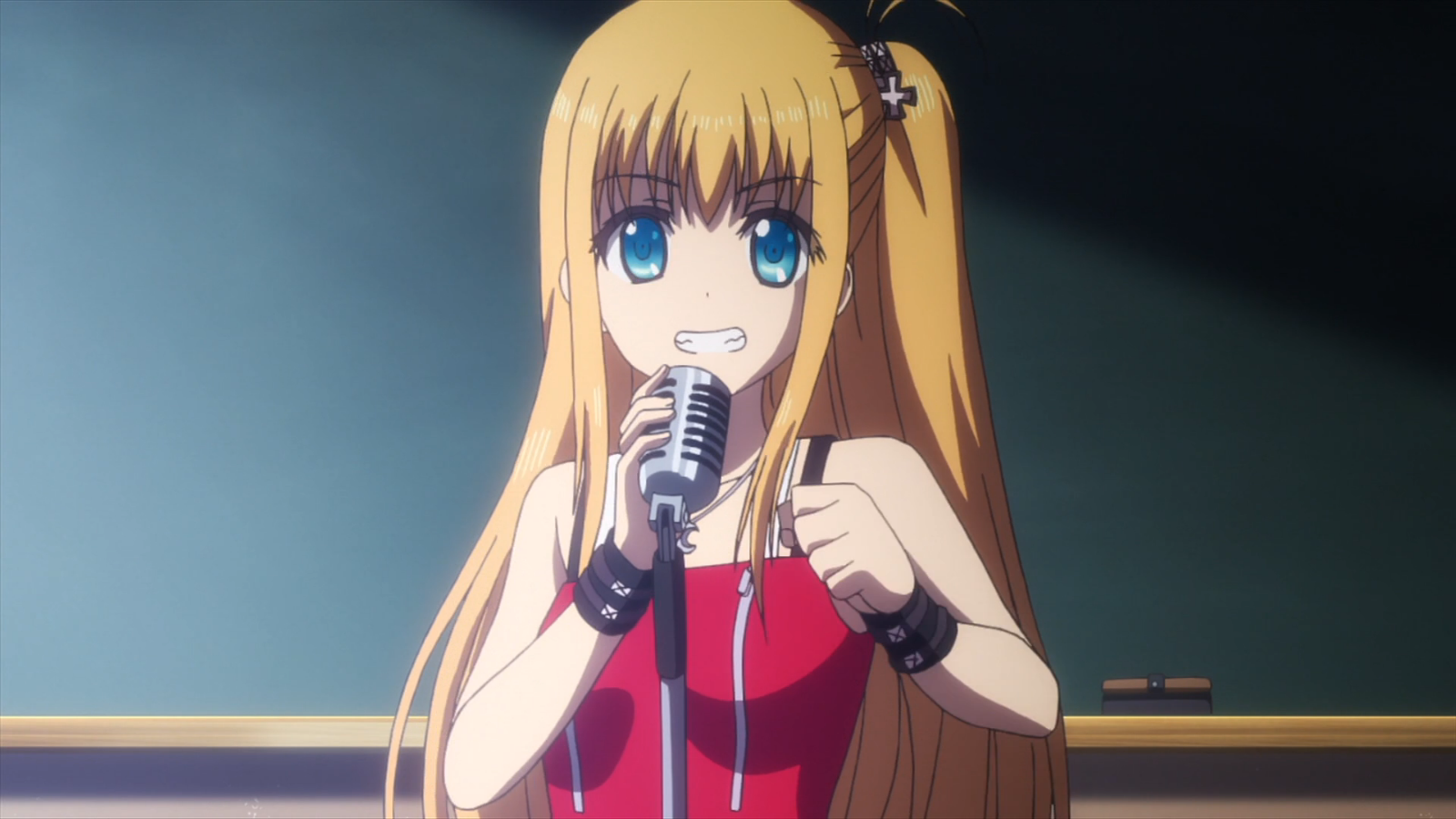
Yusarin's power is that her dead sister, Misa, can take possession of Yusarin's body and live once more. As a character, Yusarin is reflective of her music. She always has a smile on her face and never feels down or angry. Misa on the other hand, has a quick temper and is never afraid to yell at people. This is important because Yusarin can only perform her music in her original body. Misa's personality is too grumpy to capture the sense of joy that is in How-Low Hello's music. (Misa actually claims to be a fan of extreme metal with fast double bass!)
The happiness found in Yusarin's music matches the happier characters in the show. Despite having supernatural powers, Jojiro is a happy person. He doesn't have Yusarin's same level of cheerful energy, but he also doesn't struggle with any sort of serious emotional pain that we see. He has moments of feeling down, as everybody does, but these are just temporary occurrences that he can easily brush off.
Where Zhiend Comes From
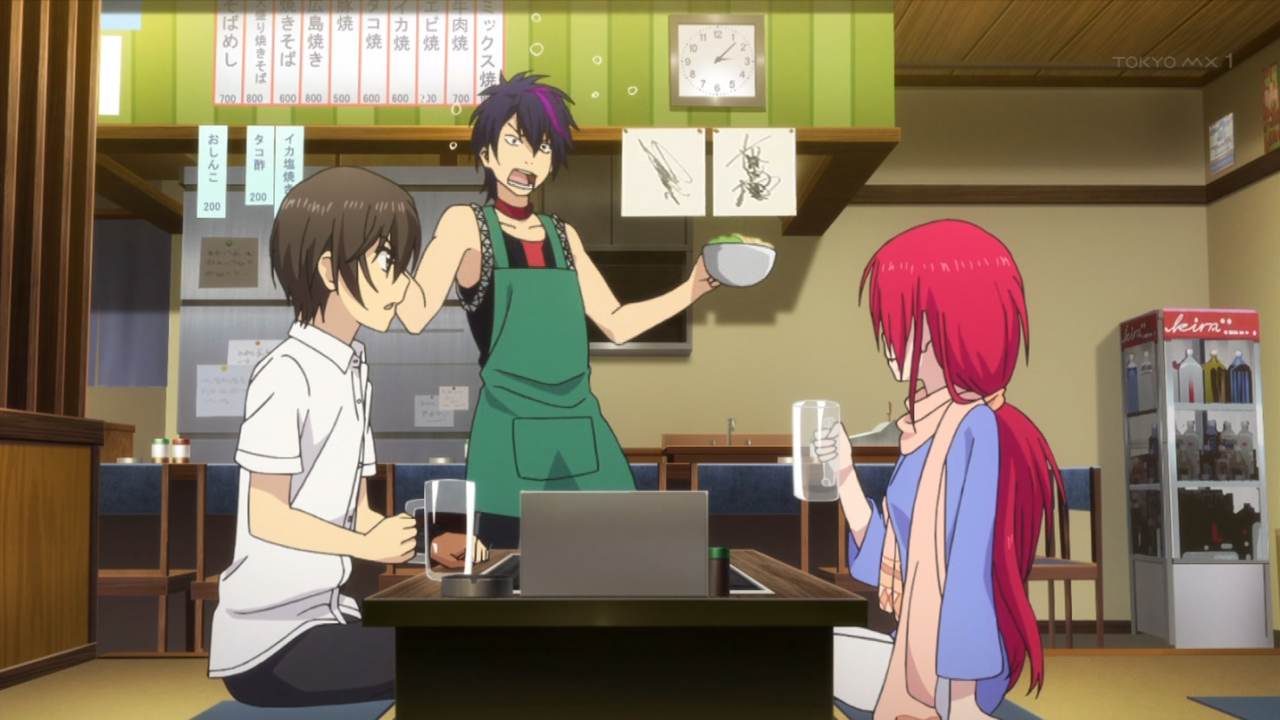
Why does Zhiend's music sound the way it does? Sala Shane is actually blind. She tells Otosaka that she has had a dark and sinful past. She never explains the physical details of how she lost her eyesight, but she says that she traded her vision to God as atonement for her sins. Sala is using the pain she experienced in her past and her struggle of trying to account for it now as fuel for her music. Sala's emotions affect the music she makes and in turn reflects how the lead characters in the show feel.
